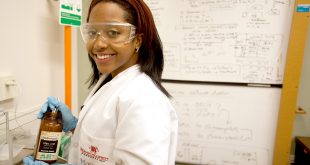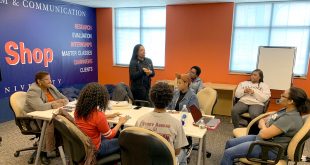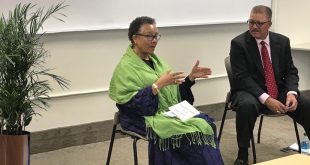 Maryland may soon delve into a new way of sustainable biofuel production, thanks to the research of Morgan State Assistant Biology Professor Dr. Viji Sitther. Last month, Dr. Sitther received a $100,000 Maryland Innovation Initiative grant to begin development of a method to produce biofuel from cyanobacteria in naturally available salt water.
Maryland may soon delve into a new way of sustainable biofuel production, thanks to the research of Morgan State Assistant Biology Professor Dr. Viji Sitther. Last month, Dr. Sitther received a $100,000 Maryland Innovation Initiative grant to begin development of a method to produce biofuel from cyanobacteria in naturally available salt water.
Dr. Sitther will lead a team of bioengineers in developing a salt tolerant strain, which when scaled-up, will offer a sustainable, efficient, environmentally conscious, and cost-effective alternative to fossil fuels.
Dr. Sitther’s research will lend new approaches in a biofuel industry that is expected to double over the next 10 years into a $185 billion industry.
“Various government entities including the U.S. Navy and Air Force are particularly interested in developing new sources of biofuels. A secondary segment will be research institutions that will apply the methods developed in the process,” says Sitther, who is completing her second year at Morgan after working as a graduate faculty member at Fort Valley State University in Georgia.
She has published 19 peer-reviewed journal articles and presented her work at numerous national and international scientific conferences. Her research interests also include elucidating the genetic diversity in Camelina sativa, a biofuel crop, using DNA fingerprinting techniques.
Created by the General Assembly and administered by the Maryland Technology Development Corporation (TEDCO), the Maryland Innovation Initiative (MII) promotes the commercialization of research conducted in five qualifying Maryland universities. The initiative encourages universities to partner on commercialization proposals, strategies, and funding sources. The MII program facilitates technology transfer from university labs to start-up companies and boosts economic development in Maryland.
 Morgan State University Newsroom Morgan State University
Morgan State University Newsroom Morgan State University




